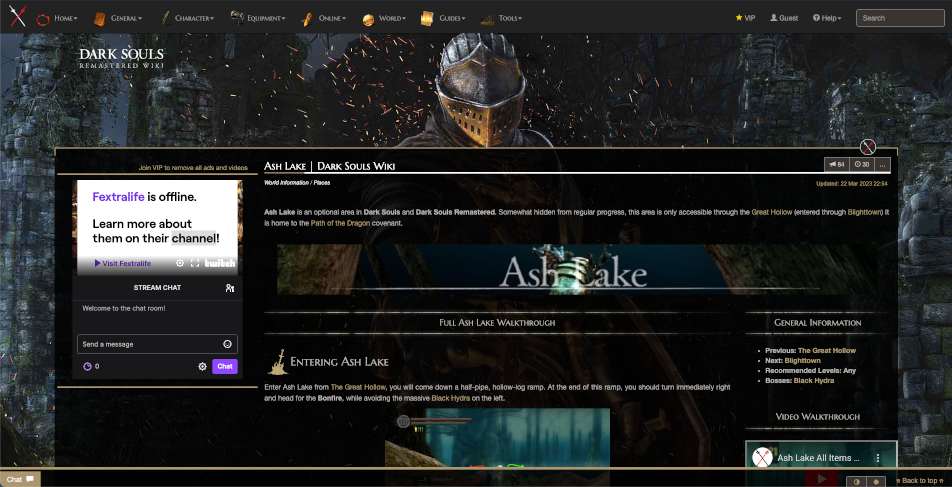So last time I was saying that a developer who is making a world to explore has a problem. He needs to teach the player how to play his game, but too much teaching takes the reins away from the player and makes him an object of the designers designs, rather than the subject exploring them.
But, I over stated things. I said “…what the element of a game represents cannot be used to discover how it will behave.” This is clearly not the case. We use the way game elements are represented to learn how they behave all the time. In my sword example I pointed out that, in the real world, a 3 foot length of steel can be used for a lot more than whacking someone. But, it can be used for whacking someone. The player is correct to assume he can do damage with a sword he finds in a game, even if he’s wrong to assume any more.
It’s not that we learn nothing about the elements of a game from how they are represented, it’s that we cannot learn the limits of how they will behave from their representation. And, the more dynamic and surprising the game mechanics, the more critical this problem becomes, because we are more likely to be confronted with multiple, and more clever, secrets and uses for things.
My proposed answer, perhaps one among many potential answers, to the question “how can the designer teach these things without removing agency from the player?” is “don’t teach them at all, let the other players do it”.
If a game’s design really does leave things obscure or impenetrably cryptic, the hand holding problem is solved. The game world just sits there doing its own thing, defying you to figure it out, like reality. Then, if the game is interesting enough, the hard work of mining the game for its secrets will be done by its die-hard fans (and almost every game seems to inspire such a group on at least a small scale).
Some players will go in blind and just poke around the game, others will scour every corner and push every boundary, then some fraction of those players will compile their findings on forums and in guides. The rest of us then benefit from the efforts of our peers. There’s even a kind of meta-game in deciding when to look something up, judging when you’ve tried long enough yourself and are ready to get the answer, trying to read the guide to give yourself enough information without spoiling something else, coming across something unrelated that leads you to play the game in a new way, etc.
By doing this work, the die-hards can open things up to a whole new audience of people interested in exploring a game, but not interested in data mining or keeping detailed notes of which walls they’ve poked for secret passages. It doesn’t violate the integrity of the design to get a little help figuring these things out. For some players, it might even enhance appreciation for a design that otherwise would never have been understood or deeply explored. It might even make enjoyment possible where burn out or frustration would be the inevitable alternative.
There’s also the potential for the wikis and guides to become interesting works in their own right, ornamenting the games they describe; elucidating things that no single player would have found on his own, which makes this type of game even more like a small virtual world, since that’s exactly what writing about and discussing the real world can do.
(The feature image is a screenshot of the Ash Lake page of the FextraLife Dark Souls Wiki.)
